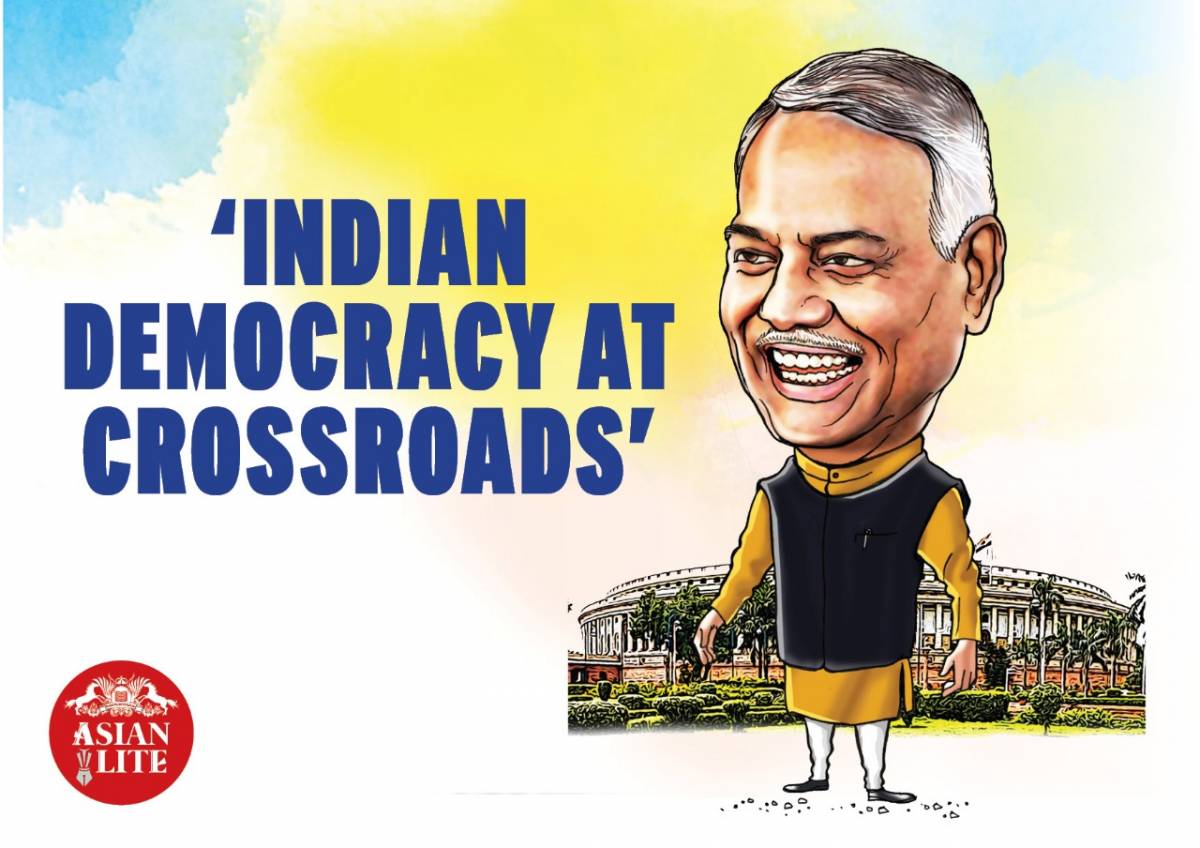Dr. Yashwant Sinha, the former finance minister of India, who has recently joined the Trinamool Congress, engaged in a candid interview with Manish Tiwari, political columnist and a leading multicultural marketing guru based in London. EXTRACTS:
MANISH TIWARI: A recent report has termed India to be an autocracy. It says that social rights in the country are in peril and even the Constitutional institutions are also facing marginalisation. Is it true that the present system of governance is all about total domination and control?
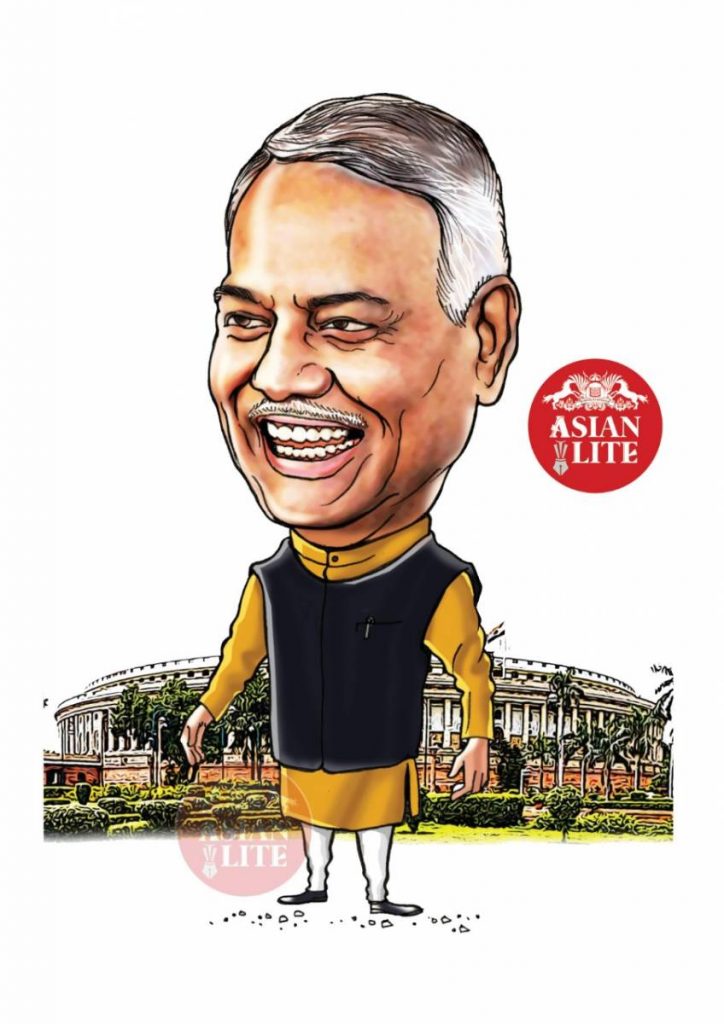
YASHWANT SINHA: What you are seeing from a distance is something that we are experiencing every day in India. The ruling party and the rulers of the day have established what can be described as an elected autocracy or electoral dictatorship. Democracy and democratic values are eroding in India under the present regime. All the institutions responsible for the safeguard of democracy, like the Parliament, the Judiciary, the Election Commission, the media, etc. are been subdued.
For instance, the retiring Chief Justice of India is being nominated to the Upper House of the Parliament immediately after his retirement, and he accepts it! This shows the extent to which the judicial system has been compromised. The less said about the media, the better. The media with a few honourable exceptions are is being the government’s lap-dog in most cases.
Manish: But, what you are saying has happened before in this country during the Emergency. Isn’t it?
Yashwant Sinha: The Emergency was a purely political escapist route which was taken by Mrs. Indira Gandhi to safeguard her chair. This ‘Emergency’ is far more dangerous because it combines communalism with autocracy. I a situation like this most people are feeling helpless and they are scared. There is a lingering atmosphere of fear in the country because agencies like the CBI, the IT department, the NIA, the ED, etc. are being misused by the government to silence its critics and to ‘fix’ the political opponents. It is happening so fast and with such monotonous regularity that people have now come to accept it as the new normal.
Manish: Sitting here in London, we see some efficiency in the operations of the present regime. The way the corona situation was handled in India, the precision with which international flight operations were regulated during the pandemic is some such instances. Do you agree that this regime does have a certain amount of efficiency?
Mr Sinha: No, I do not buy that theory. It is the lap-dog media of the country that has created the impression that it is a very efficient government. Look at any part of the government functioning and you can witness its inefficiency. The pain that demonetisation caused to the people and the damage that it did to the economy is forgotten. Another blunder of the government was the introduction of the GST in a half-baked condition. All these now seem to be in the past as public memory is short and media memory shorter.
Lastly, as I mentioned earlier, the misuse of the government agencies. People yet to be scathed are feeling that they are safe without realising that the day is not far that these types of machinery can come knocking on their doors. The impression that is being spread, that this is a strong and efficient government, is far from the truth.
Manish: So you reckon that all the success stories of the government are media projections spun out of the PR machinery?
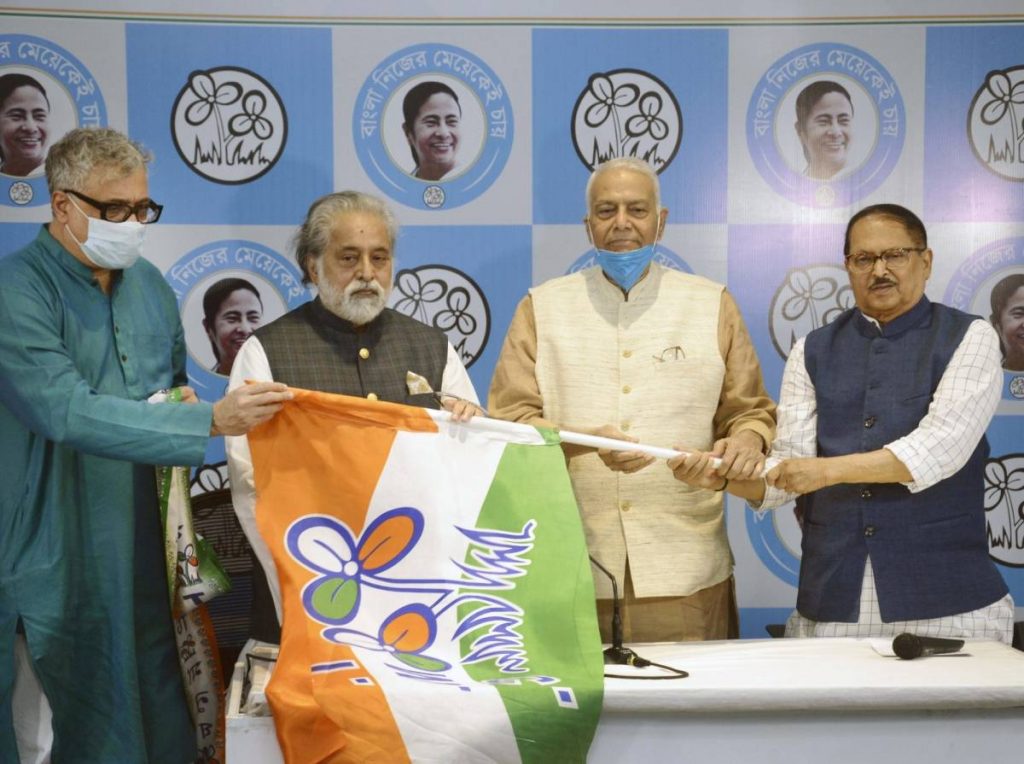
Sinha: These are all well weaved false projections by the media. The BJP indeed came into power in 2014 due to the corrupt Congress regime, but their re-election in 2019 was entirely on account of the unfortunate Pulwama incident, followed by a strike against Pakistan which was blown out of proportion by the media. That impacted heavily on the mind of the people and they voted in a particular way. There is a lot of evidence which were put together by enterprising journalists which evoked doubts about the government’s claims and actions. So, I would say that this government can stoop to any level to win an election. I am seeing this with my own eyes in Bengal.
Manish: The whole world is witnessing an ultra-nationalist trend of politics as propagated by leaders like Trump. A call to bring back past glory seems to be working everywhere. Even in the UK, Brexit happened on that notion. Modi is also talking about revoking the glorious past of India which he claims was lost through centuries of foreign rule by the Islamic invaders and then the British. This kind of narrative seems to have captured the imagination of the Indian voters. Do you agree?
Mr Sinha: The present BJP leadership is not talking about the glories of the past; they are being communal. They are invoking communalism in a major way into the politics of this country and they are misusing the religion card to garner votes. Whatever is happening in India is unique and has no semblance to the political scenario of the countries that you cited. I can’t imagine an Atal Bihari Vajpayee, behaving in the way the present Prime Minister is behaving.
Manish: Having said that, don’t you think there is a semblance in ways that the mechanisms of electoral politics e.g.) the social media, are being used by leaders like Trump and Modi? Trump did that successfully during the US elections and I believe even Mr. Modi has a strong influence over the netizens. What do you think?
Mr Sinha: Mr. Modi has been using social media influence for a pretty long time since the days when he was the Chief Minister of Gujarat. Using social media largely depends on the resources available at ones’ disposal. For instance, in 2014 there were five or six other Chief Ministers from important States who were contenders to be the Prime Minister. Yet, Mr. Modi became the only acceptable face for the Prime Minister’s post.
It was all because of social media. Through a bombardment of fake news and false propaganda, he was made to look larger than life. People from other States also started believing in stories about the wonders that he had done as an administrator in Gujarat. They wanted the same for the country and fell for that false propaganda. The added ‘potion’ to that was the religion card.
Concocted false propaganda designed by an American PR agency with the help of enormous resources helped in creating a false image of Mr. Modi which yield him fantastic results.
Manish: I am aware of the Gujrati community raising huge funds for Mr. Modi, here in the UK. Won’t you give him the due credit for the successful mobilisation of the diaspora? I mean there is nothing wrong with using ones’ contact and support base.

Mr Sinha: The diaspora doesn’t vote. We know that far more Gujrati brothers and sisters live abroad than any other people from any other State. They rooted for him because he is from their State.
Manish: Having said that, we can note that, first Mr. Amit Shah and then subsequently many other important posts went to people from Gujarat Mr. Modi’s regime. Do you think that a trend of regionalism has been introduced by the present government?
Mr Sinha: There was an unwritten rule in the BJP and even in other national political parties that, the President of the party in power and the Prime Minister would not be from the same State. Now, when this party came into power in 2014, Rajnath Singh was replaced by Amit Shah as the Party President. Subsequently, Amit Shah was brought into the government and he replaced Rajnath Singh to be the Home Minister. This also is weird that the Prime Minister and the Home Minister are from the same State and have no precedence in our history. A regional balance has always been maintained in the Government of India. But, they abide by no rules and have no respect for any conventions. Therefore, they brazenly do whatever they feel like doing.
Manish: When you quit the Bharatiya Janata Party in 2018, you cited that “democracy in India is in grave danger” and the “party’s condition.” What did you exactly mean by those phrases?
Mr Sinha: When they became powerful in the party, they first extinguished the internal democracy within the BJP. That disturbed me a great deal and I started drifting away from the BJP. Between 2014 and 2018, I saw major instances of democracy getting extinguished at the national level. That’s when I decided, despite my advancing age I must stand up and fight these forces and that’s what I am doing even today.
Manish: Your son Jayant Sinha is still a BJP MP. He was the Junior Finance Minister of the Modi government at some point in time but now is just an MP. Do you think your vocal opposition against Narendra Modi is the reason for your son’s demotion?
Mr Sinha: Jayant Sinha is a highly qualified individual who has won his Lok Sabha seats through merit. He was given the posts of Junior Finance Minister and the Junior Minister for Civil Aviation due to his qualifications and he brought a lot of merit to the job he was doing. Now he is just a Member of the Parliament and heads the Standing Committee of Finance which is not a ministerial post. People tell me that this is because of my opposition to the government. If that is so then I would say that it is a very cheap tactic as my son and I are two very different individuals. He holds his own rules and I mine. Therefore, if he is deprived of anything that he deserves from the government due to my opposition to this government, then I must say that it is a very sad state of affairs.
Manish: Will you say that, in promoting only those who will toe their line, the current government is going the Congress way?
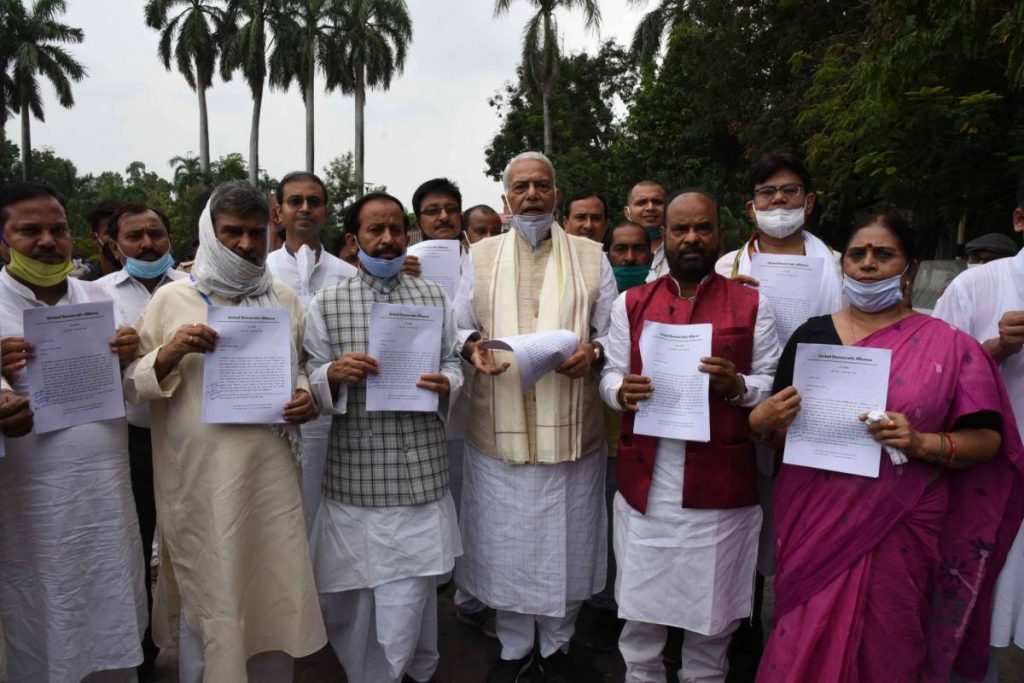
Mr Sinha: The Congress regimes in the past may be guilty of many misdemeanours, but I don’t think and Congress Prime Minister has descended to this level in which Mr. Modi has descended. Just look at the Bengal elections. He comes here and behaves like a street urchin when he calls out, “Didi, Oh Didi!!” What kind of behaviour is this? Can you imagine Jawaharlal Nehru or Manmohan Singh or Vajpayee behaving like this, even in an election rally? He has demeaned the post of the Prime Minister.
Manish: Quoting John Dalberg-Acton, “power corrupts and absolute power corrupts absolutely.” Do you think that the sense of absoluteness in the present government is leading it to be arrogant and autocratic?
Mr Sinha: Most certainly. The more the media talks about his enormous popularity and the fact that there is no challenge to him, he will continue feeling omnipotent and will ignore the rules of the game. This is the reason why we are seeing all aberrations in our democracy and a departure from the rules of the game.
Manish: My friends in the Indian media tell me that, it has now become an accepted truth that if you criticise Narendra Modi or any of his actions, you will be viciously bombarded with trolls coining you a Pakistani and an anti-national. Have you ever experienced this phenomenon?
Mr Sinha: I get trolled every day by their army of trolls who I know operate from outside India. However, trolling is not the major factor. What happened to Indian media is that powerful journalists having an independent voice have been marginalised. Unfortunately, all Indian media houses are owned by big corporate houses. The owners of these houses are now being controlled by the party. They are told whom to hire and whom to fire. Micro-management of the media has gone to such an extent that even the subject of discussion in the evening prime time shows is decided by the party. The media houses are also instructed on the panel of guests to ensure that the discussions weigh heavy on the government’s side.
Manish: Director General Julio Ribeiro once said that in India, if want to find any anomaly against any individual, it can be easily found as the law operates in such a way that they will have at some stage done something that can be held against them. So do you think that people are being easily penalised because of their vulnerability?
Mr Sinha: I disagree with the term penalised. They will be raided and often a case will be started against them which will have no outcome. Public memory is short and media memory is deliberately shorter. Chidambaram was arrested and put behind the bars for more than a hundred days. Then what happened? Nothing. I can quote several such cases which bore no fruit. Often in such cases, the media will blare out their trial.
Remember the death of an actor before the Bihar elections? That episode went for a long, and now that the Bihar elections are over, only a handful number of people are concerned about that case. Almost the whole media has bowed down to the government. How will correct information reach the people?
Manish: Where are the regulators?
Mr Sinha (stops Manish in between): Which regulators are you talking about!! There are Constitutional bodies that have succumbed, so do you think that a regulator appointed under some law will have the courage to stand up? Especially the head of that regulatory body who probably would have been appointed by this government, will he have the courage to fight for regulations?
Manish: You have been the Finance Minister of the country. Yet, the Prime Minister talks about a $5 Trillion Economy by 2024. As the former Finance Minister of the country, do you think this to be a viable dream?
Mr Sinha: Let’s not waste time on the slogan of a $5 Trillion economy. I think it is a waste of time even to discuss it for a minute. How many people do have the idea of a trillion or are aware of the value of the dollar? So, why are we talking about a $5 Trillion economy when addressing the masses of India? $5 Trillion economy by 2024 is a pipe dream. I may not be around to see it, but I will be happy in heaven if we can achieve the dream even in 2030.
Manish: The Indian middle class is in great peril at the moment. Bank interest on savings is decreasing now and then, fuel prices are at their all-time high, joblessness is rampant. Do you think the people of India will hold the BJP accountable in the next general elections in 2024?
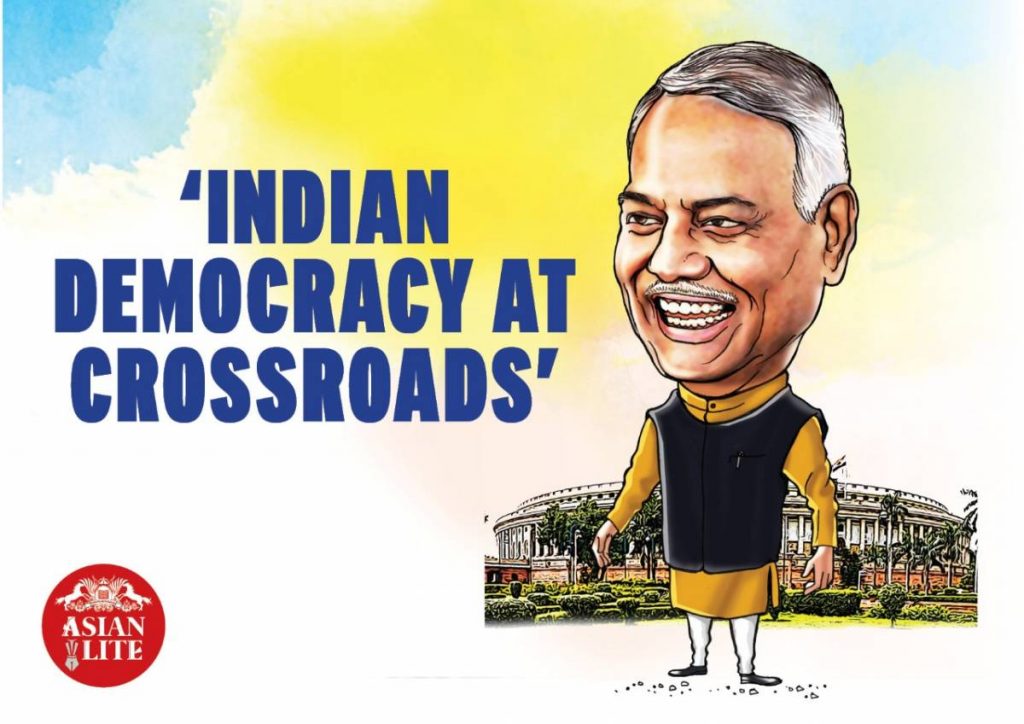
Mr Sinha: Currently five State Elections are going on including Bengal. The Bengal elections of 2021 and then the UP elections next year will lay the ground for the 2024 elections. I shall not be surprised if the untruth that is uttered by the government, and the Prime Minister is found out by then. If the people are not misled, and if no ‘accident’ happens involving our neighbouring country, then this government will go in 2024.
Manish: You mentioned the Bengal elections. There have been some indicators that the BJP has made some headway and is in a position of control. Do you agree?
Mr Sinha: You are sitting in London right, and your source of information is probably the Indian media. BJP is strong in controlling the social media and the media here, but they are not at all a strong force in Bengal. All kinds of false and fake news are being propagated through the media, and that’s how the BJP has positioned its image as a challenger to TMC in Bengal. I have travelled from place to place in Bengal. They are nowhere on the ground, but they have resources to buy flags and festoons which they put up all around. Thus, creating an illusion of their presence. Let me tell you with a command that, the BJP will do very poorly in the Bengal elections and Mamata will reign for the third time.
Manish: The media narrative can be controlled by the BJP, but what about the heavy campaigning by almost all the heavyweights including Narendra Modi, Amit Shah, and Yogi Adityanath? Don’t you think that these rallies and campaigns will have some impact?
Mr Sinha: Every government in a democracy has an opposition, so does Mamata Banerjee. In Bengal, the Left and the Congress have completely ceded ground to the BJP. The CPIM workers have all migrated to the BJP. Therefore, the opposition space is empty and the BJP might emerge as the second-largest party here and take that position. However, what is being projected now as their superiority is a reflection of their money and muscle power, which is far from reality.
Manish: The opposition in Bengal pins Mamata Banerjee and her politics of Muslim appeasement to be the reason for the BJP’s advent into an otherwise secular-minded State. Do you agree?
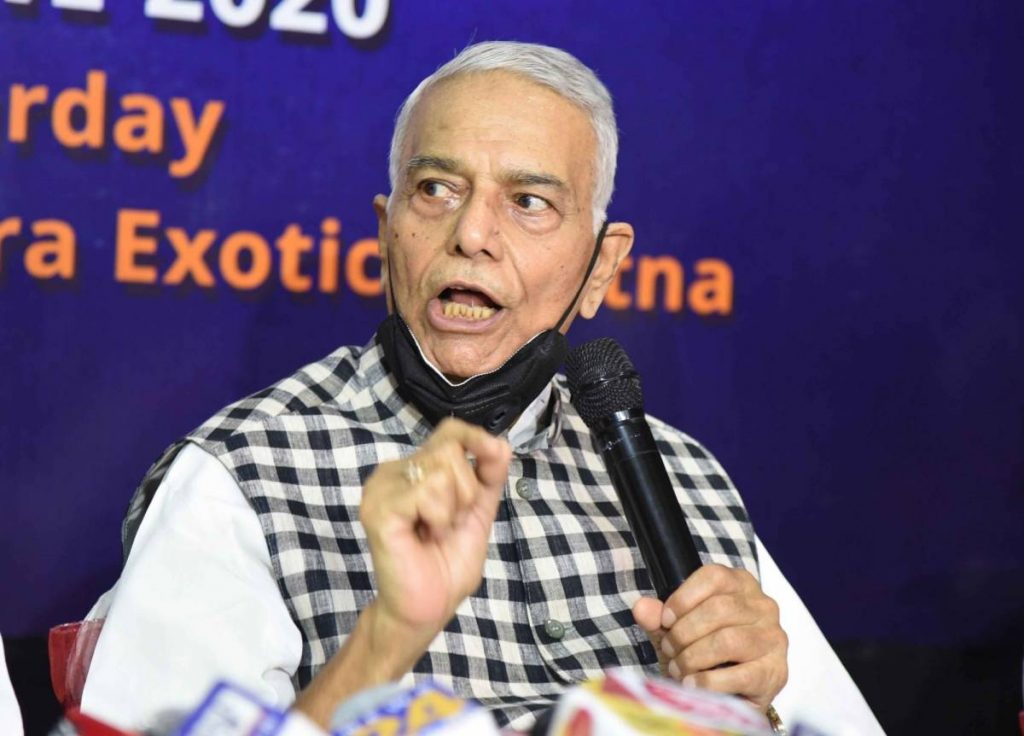
Mr Sinha: If you are secular and you treat the Hindus and the Muslims equally, then the BJP always accuses you of Muslim appeasement. Their policy is of majority appeasement based on a majoritarian doctrine. Therefore, anyone giving equal treatment to all communities, what our Constitution enjoins is something which is an alien concept to them.
Manish: So you reckon that Mamata Banerjee will come back to power?
Mr Sinha: With absolute certainty.
Manish: What will be your role in the Trinamool Congress if it comes back to power. Will you be working towards taking the party national, or are you going to work with Mamata Banerjee at the State level?
Mr Sinha: It is too early to talk about such issues now. I cannot predict anything at this point. It will be for the party to decide what roles they want me to play after the elections.
Manish: We are approaching the end of our interview and I shall now want to talk about your autobiography. You are 83 years old now, and at an age when people retire, you made a comeback into politics to fight for values that you deem right. Is this because of this relentless spirit of yours that you named your book- Relentless?
Mr Sinha: I have relentlessly pursued certain things in my life. I have always stood for the prestige and dignity of my country. There is an incident mentioned in my autobiography, about a brawl that I got into with some students from my university when they were bothering some foreign girls. I took a beating and broke my nose in that street fight. I was fighting for national honour. I couldn’t let those boys ruing the name of my country. That is ingrained in me. I have fought for my country’s honour relentlessly throughout my life and shall continue to do so.
Manish: We have been discussing values like secularism and liberty being in peril during these times. Now, before concluding this interview, I shall want to know what you think should be done about it?
Mr Sinha: All these values that you are talking about, are encapsulated in our Constitution. If we value, the Constitution of India then we need to stand for its protection. There is no doubt about the fact that there are threats. The present regime is the biggest threat that India has faced as far as these values are concerned since our independence. However, I have great faith in the judgement of the people and feel that when they see the wrongs that have been committed, they will lose no time in throwing out this government. If the government interferes with the use of ballot power, then the people are not going to tolerate that. It will be the people’s power that will fight out the authoritarian power of the government.
(Compiled & Edited by: SOUMIK SAHA)

Yashwant Sinha 
Yashwant Sinha 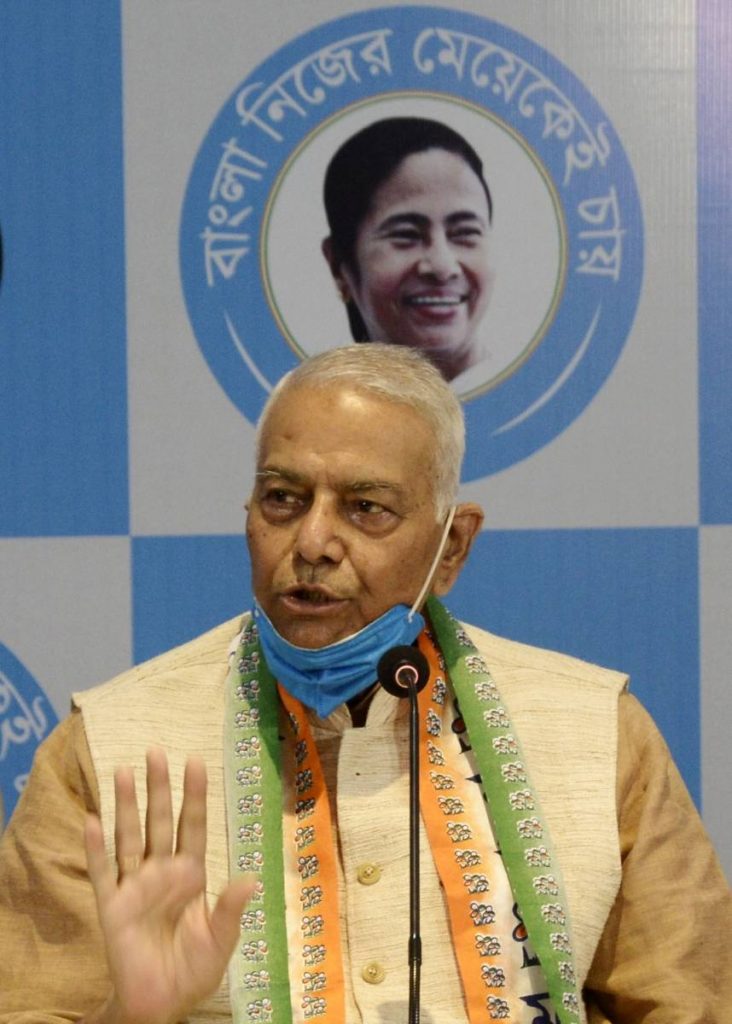
Yashwant Sinha addressing a press conference 
Yashwant Sinha addressing a press conference 
Yashwant Sinha addressing a press conference 
Yashwant Sinha arrives at Raj Bhavan to submit a memorandum on Bihar floods to Governor Phagu Chauhan, in Patna 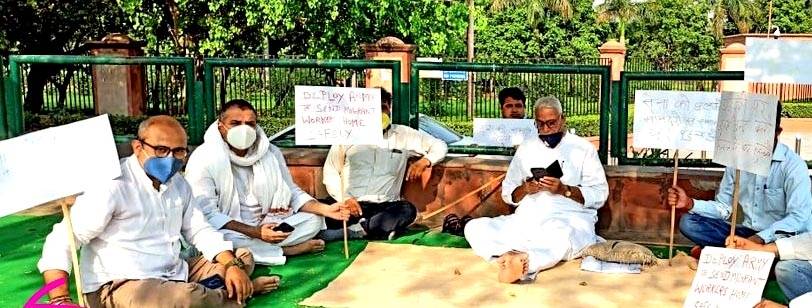
Yashwant Sinha and AAP leaders Dilip Pandey and Sanjay Singh stage a sit-in demonstration to protest over migrant workers’ issues at Rajghat in New Delhi during the extended nationwide lockdown imposed to mitigate the spread of coronavirus
